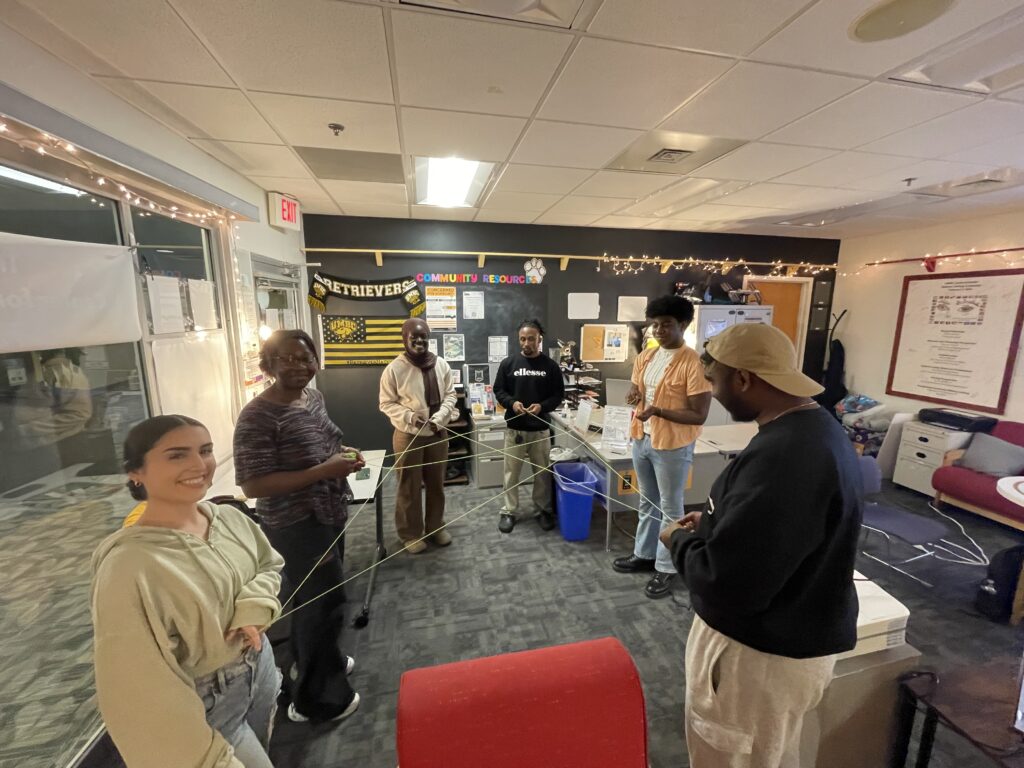At UMBC, we believe that fostering the capacity to engage in meaningful dialogue across difference is essential to building an inclusive and innovative community. As a diverse institution committed to inclusive excellence, collaboration, and social impact, we recognize that navigating complex conversations with empathy, curiosity, and a commitment to equity strengthens our shared learning and growth. Dialogue allows us to bridge perspectives, deepen understanding, and work collectively toward solutions that reflect our values. Through campus-wide partnerships, we create spaces for open, thoughtful, and transformative conversations that empower individuals to shape a more just and connected world.
Campus Partners:
The Center for Democracy and Civic Life helps people develop the knowledge, skills, and dispositions to create healthy communities and tackle challenges together. Their work builds from the premise that civic life encompasses everyday settings and relationships through which people can generate the power to shape their world, and includes Connection Core dialogue opportunities and facilitation training.
The Center for Social Justice Dialogue is a part of a broader campus-wide dialogue landscape. Grounded in social justice education, the Center prioritizes dialogue engagement focused on issues of social identity, lived experiences, and systemic impact. Dialogue approaches and programs are grounded in building skills in critical self-reflection, cultural storytelling, generous listening, and loving accountability.
Student Engagement and Belonging helps faculty, staff, and students develop the knowledge, awareness, and skills to cultivate an inclusive and social justice-oriented campus community and engage identity-based dialogues across difference.
Truth, Community Healing, and Transformation’s vision and purpose is to improve our capacity as communities and as a country to see ourselves in each other so that we can share a more equitable future. Through racial healing and community healing circles they contribute to dialogue across campus.
Restorative Practices at UMBC help strengthen relationships between individuals as well as social connections within our community through a philosophy and a set of formal and informal tools that view building relationships, repairing harm, and rebuilding trust when harm occurs as important ways to create a peaceful and productive society.
The Women’s, Gender, & Equity Center at UMBC advances gender equity from an intersectional feminist perspective through co-curricular programming, support services, and advocacy for marginalized individuals and communities, and engage topic- and identity-based community and group dialogues.
